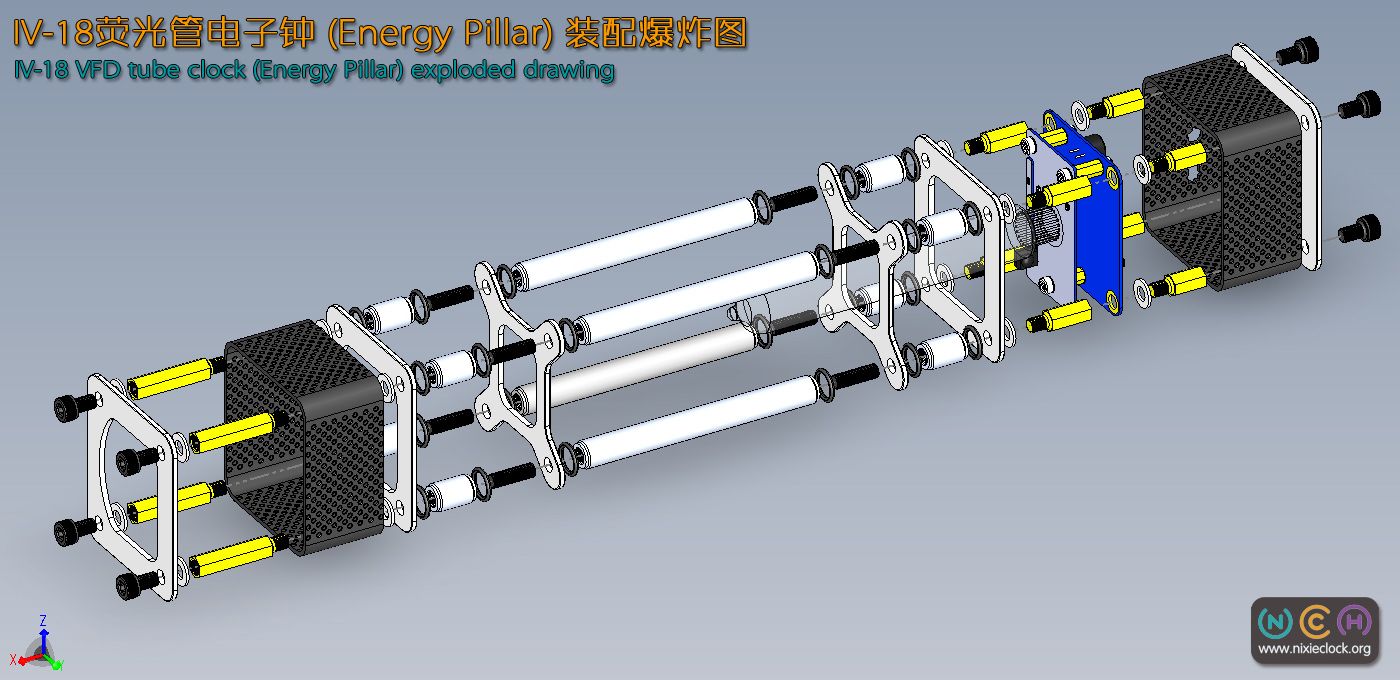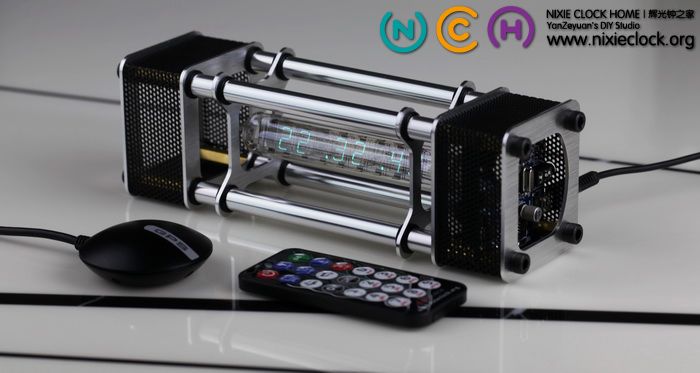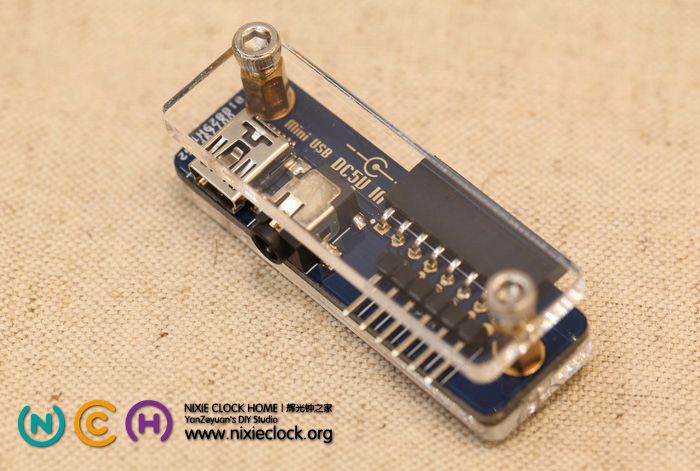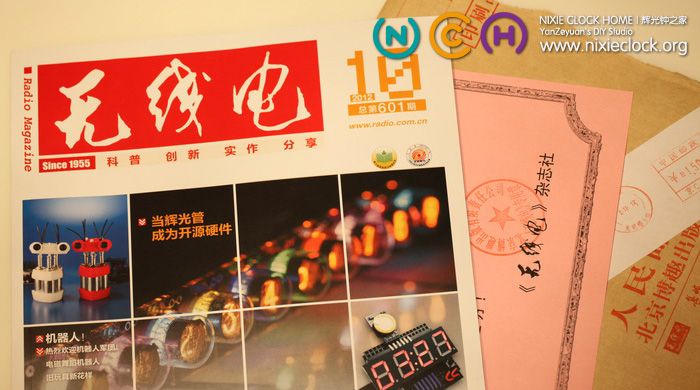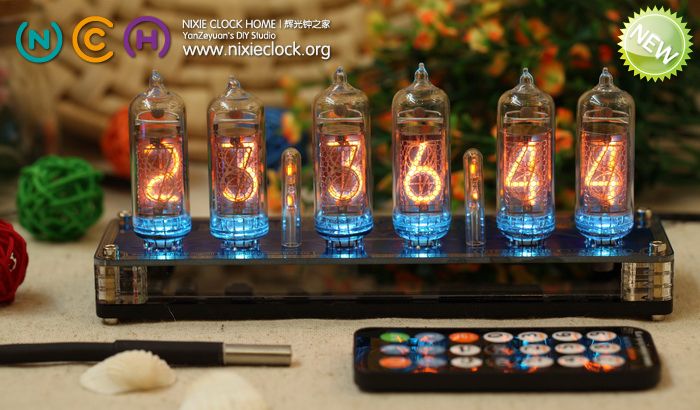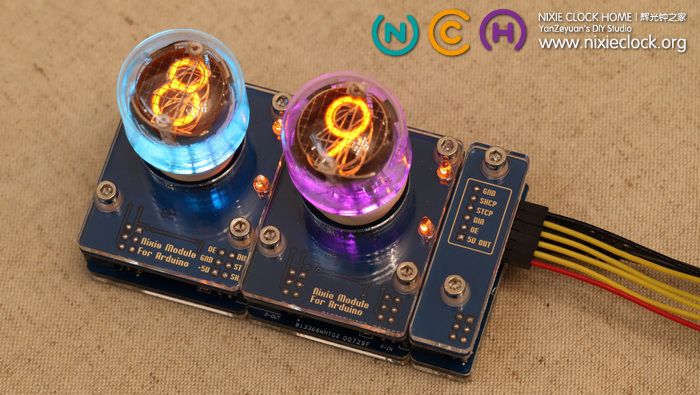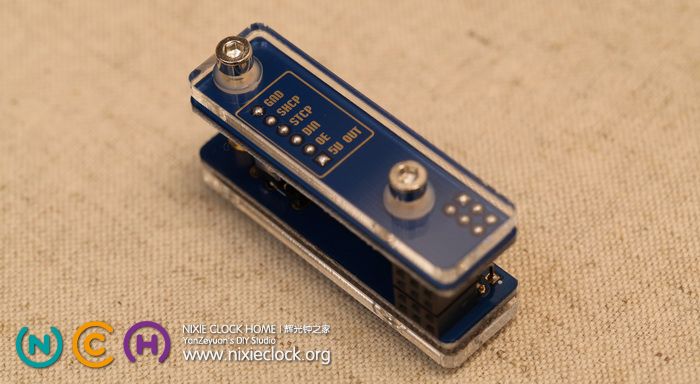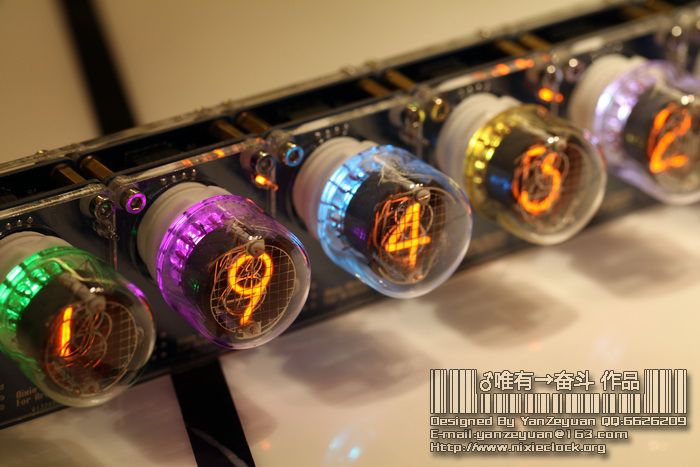VFD tube, vacuum fluorescent display, which was invented in Japan in 1967, typifies the display component of the vacuum electronic era.
Just as the Nixie Tube, VFD tube is also on the verge of extinction. It has been fade out from modern applications since the 1990’s. Young generations may have never seen its limpid cyan fluorescence, given life by the intelligence of the last century.
With the same concept of developing the Nixie Tube module for Arduino, in order to make the VFD tube reborn, combined antiquated electronics with modern technology, the VFD tube module is developed as independent blocks. Without headaches about high-voltage generation, logical driver, soldering, geekers can focus their time and energy on achieving the design idea of the final works. Meanwhile, for designers with no electronic background, Arduino is all they need, of which 4 I/O pins can supply full control on a dozens of VFD tube modules with individual RGB led background lights. Other MCU systems or developer kits would do the same.
Thanks aGuegu for testing my VFD tube moudle first-handed and developmet of its Arduino library.
The technology of VFD is still widely used nowadays, however, no more in tubes. VFD screen is Hi-fi equiment, Automobile instrument panels. This device consists of a hot cathode (filaments), anodes (phosphor) and grids encased in a glass envelope under a high vacuum condition. The cathode is made up of fine tungsten wires, coated by alkaline earth metal oxides, which emit electrons when heated by an electric current. These electrons are controlled and diffused by the grids, which are made up of thin metal. If electrons impinge on the phosphor-coated plates, they fluoresce, emitting light. Constract to the Nixie tube, it requires lower supply voltage, which means is safer and longer life expectancy.
This module application use model IV-22 (ИВ-22) VFD tube, dimensioned as a rectangle of 32mm * 22mm. It display on top with 12 pins. These batch of tube were mass manufactured in former Soviet Union during the Cold War, whereas, they are stored in warehouse corners and being forgotten. But its material guarantees its unlimited shelf life.
The specifications of IV-22 VFD tube:
1. High vacuum inside, unlike the inertia in nixie tube.
2. Lower vlotage requirement and energy consumption. The filament voltage is between 1.0 and 1.3 volt, working both on DC and AC. The voltage of anodes (phosphor) against grids is 22-30v. The current in filament is 100mA, while 4-10mA in grids.
3. Seven-segment digital display, can present decimal figures and basic letters.
4. Cyan colored, bright light with high contrast, visible even in daylight, and not Glare.
Check some photos, and more description comes afterwards.
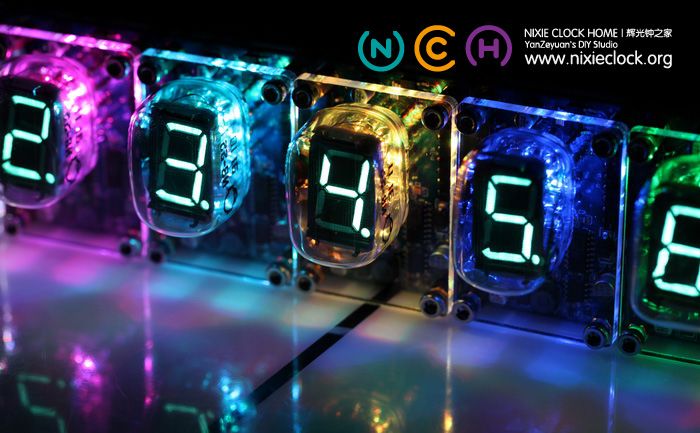
(更多…)
